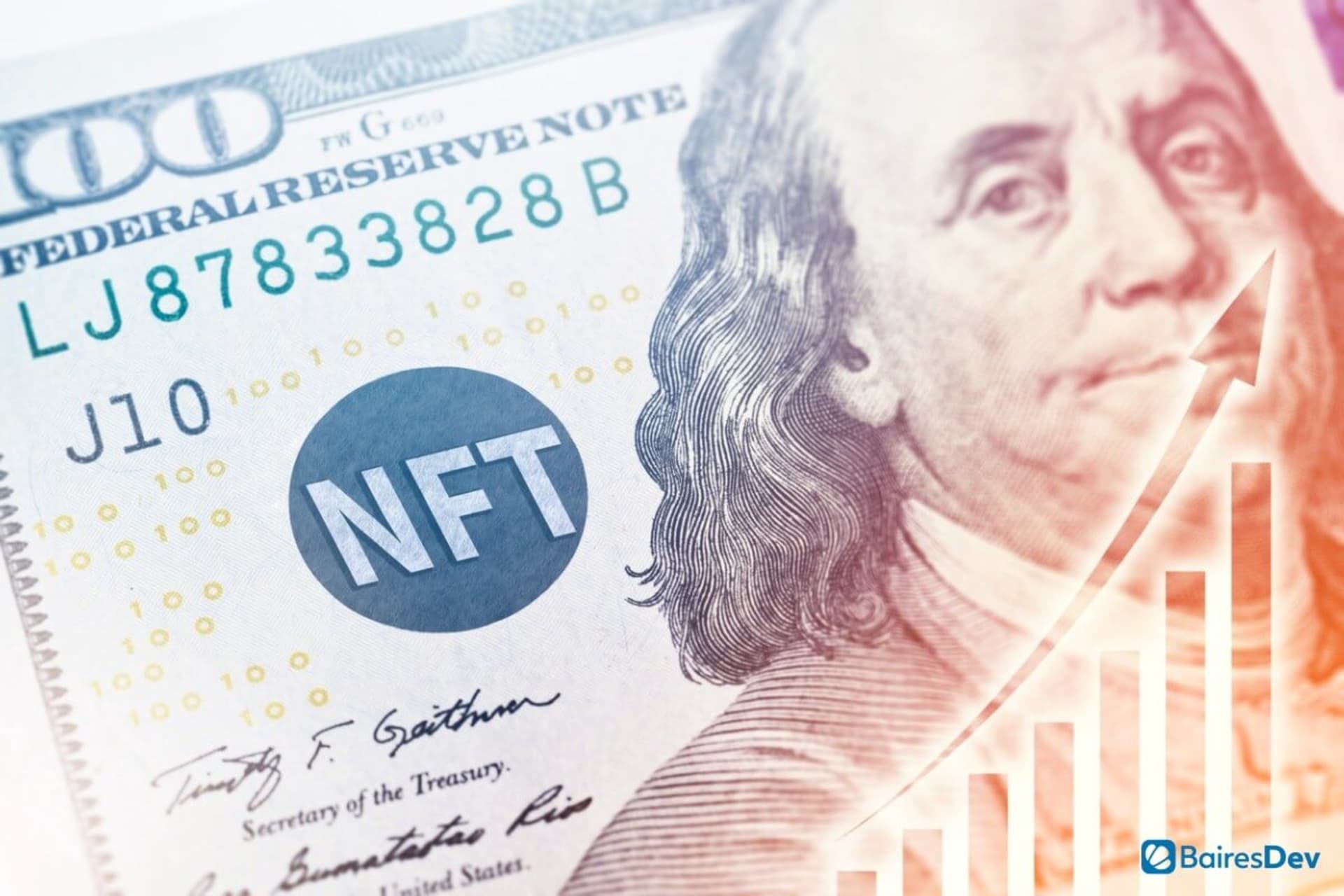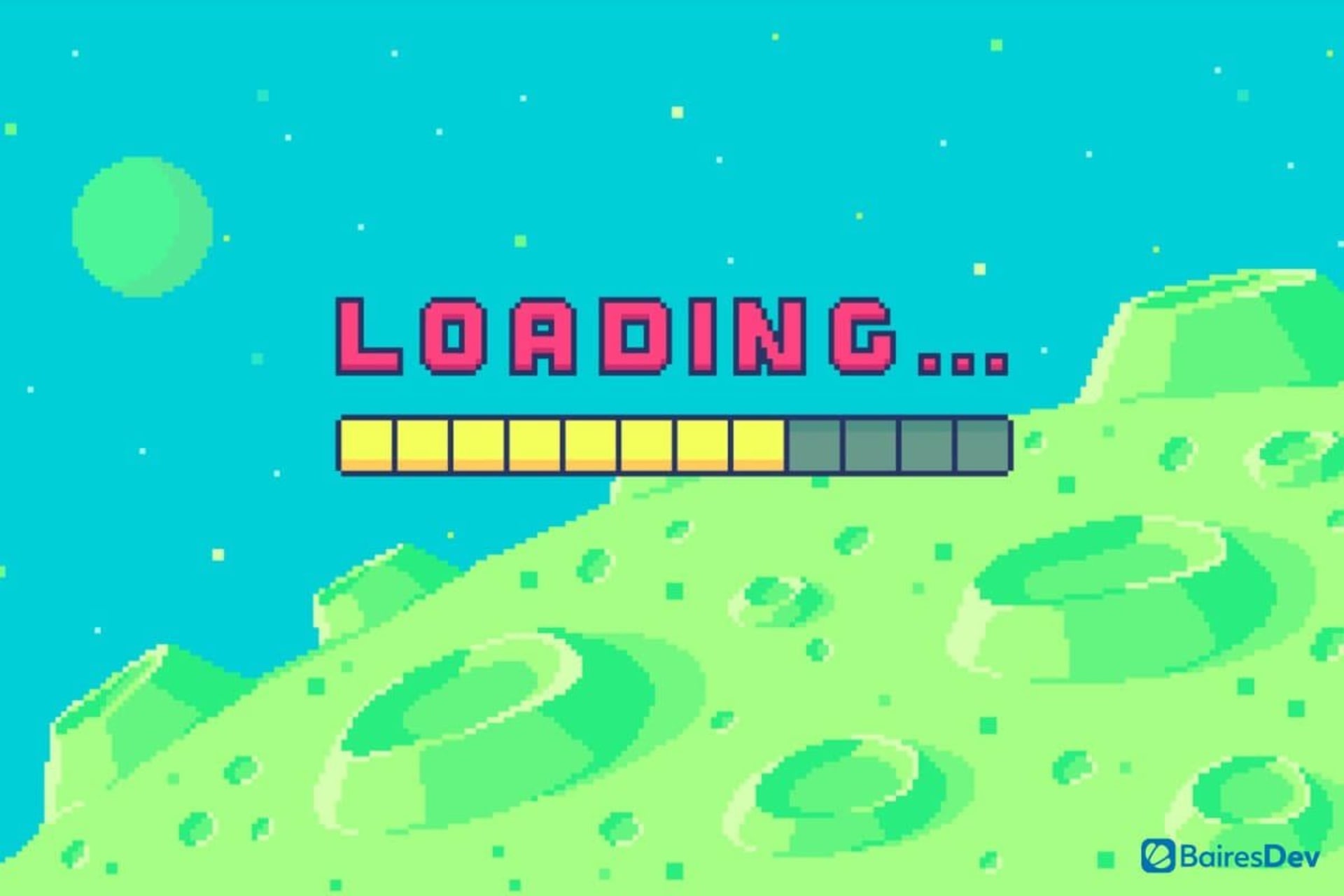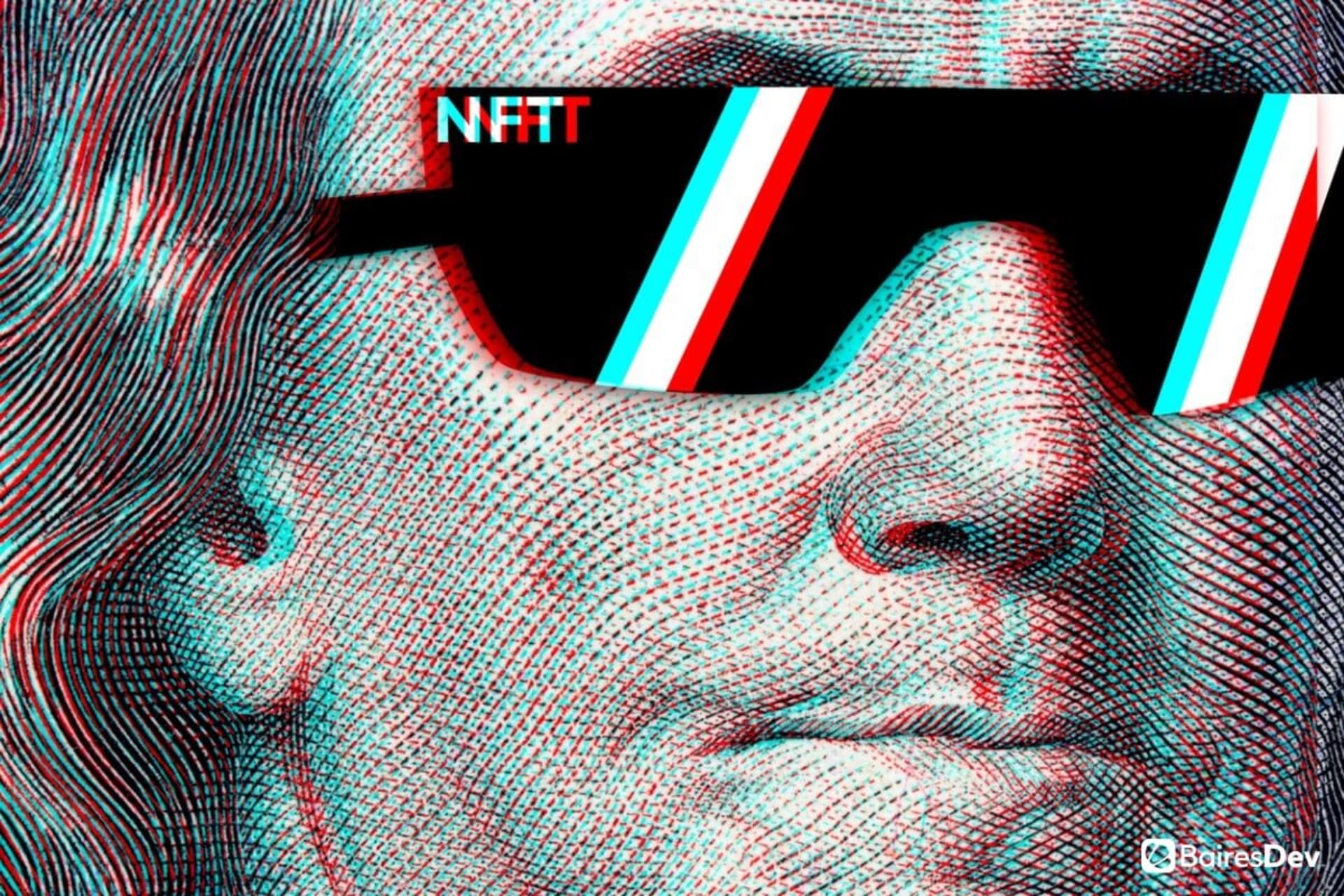Hire NFT Developers
Our top 1% of tech talent has already undergone a rigorous vetting process. Get bilingual, nearshore NFT developers on your team within 2 weeks.
500+ companies rely on our top 1% tech talent.
No time to find the top talent yourself? Skip the hassle of recruitment.


The Ultimate Guide for Hiring NFT Developers
Finding a top-tier developer is a daunting task. With over 1,200 projects delivered across more than 100 industries, we understand what it takes to find the best NFT developers.
This detailed guide simplifies the technical hiring process for NFT developers, providing valuable insights to streamline your search. We’ll cover key considerations before hiring NFT developers, highlight critical skills, and provide interview questions and answers to common recruitment FAQs so you can make informed decisions with clarity and confidence.
Before You Start Hiring
Project or Team Requirements
Before hiring an NFT developer, define your project’s scale and complexity. Will they work solo or as part of a team? The scope of your NFT project, whether it’s a simple collectible or a complex ecosystem, will determine the level of experience needed. Clarifying this helps you match the developer’s expertise to your project’s demands.
Experience in Your Preferred Methodology
NFT projects can require different development approaches, such as Agile, Waterfall, or Scrum. It’s important to hire a developer who is familiar with your preferred methodology, as this leads to smoother collaboration and alignment with your project’s timelines and deliverables. Familiarity with your process helps developers adapt quickly to your workflow.
Culture Fit
Hiring an NFT developer who aligns with your company’s culture can significantly impact the project's success. A good cultural fit will help the developer work well with your team and adopt your company’s values and work ethics. This promotes a collaborative work environment.
Adaptability
The future of NFTs is fast-paced, with new tools, platforms, and standards emerging regularly. It’s crucial to hire a developer who can quickly adjust to new technologies and project requirements. Developers who stay ahead of trends and can pivot when needed will help keep your project on track, even as industry demands shift.
Communication Skills (Including Documentation)
Effective communication is vital when working on complex NFT projects. Make sure the developer can explain technical details clearly, collaborate with other team members, and document their work thoroughly. Good documentation makes future maintenance and updates easier, while clear communication reduces misunderstandings.
20 Skills Every NFT Developer Should Have
NFT development isn’t just about creating assets; it’s about understanding blockchain technology, smart contracts, and digital asset management. Platforms like Ethereum and Binance Smart Chain are the backbone of NFT creation. Do your developers know how to use Solidity for smart contracts? Can they leverage IPFS for secure file storage? These skills are key to building decentralized, verifiable, and secure NFTs.
Developers with the right technical skills drive success. Blockchain, smart contracts, and digital asset management expertise create NFTs that are not only secure but also transferable. This reduces risks and accelerates the development process. Developers who integrate these technologies well create a strong, engaging NFT ecosystem that drives user interaction.
In this section, we've curated 20 fundamental skills to look for in an NFT developer:
Technical Skills to Look for in Your Ideal NFT Developer
1. Blockchain Development
Blockchain is the backbone of NFTs. Developers need knowledge of decentralized networks like Ethereum, Binance Smart Chain, and Solana to maintain secure and transparent transactions. It keeps the NFT ecosystem trustworthy and efficient.
2. Smart Contract Development
Smart contracts automate transactions on blockchain networks. Developers write these contracts to execute without intermediaries. Mastery of smart contract programming languages like Solidity is vital. Reliable, self-executing NFT agreements depend on this expertise.
3. NFT Standards
NFTs follow specific standards, with ERC-721 and ERC-1155 being the most common. Developers need to understand how these standards work to create compatible tokens to make sure NFTs are transferable, interoperable, and can be used across platforms.
4. Cryptocurrency Integration
NFTs often require payment in cryptocurrency. Developers should be proficient in integrating payment systems like Ethereum, Bitcoin, or stablecoins. Mastering this skill simplifies transactions and broadens the platform’s functionality for buyers and sellers alike.
5. Metadata Management
Metadata defines the attributes of NFTs (e.g., title, description, image URL). Proper management is key to providing accurate, traceable NFT information. This maintains accurate metadata so users easily verify authenticity and ownership.
6. Web3 Integration
Web3 technologies connect users directly to the blockchain through decentralized apps (dApps). Developers need experience with Web3.js or Ethers.js for interaction between the frontend and the blockchain. These tools create seamless wallet connectivity and interaction with NFTs.
7. IPFS (InterPlanetary File System)
IPFS is a decentralized file storage system crucial for storing NFTs off-chain. Developers need to know how to use IPFS to store and link NFT data. This expertise guarantees long-term accessibility and verification of NFTs, even if the original data source is lost.
8. NFT Marketplace Development
Building an NFT marketplace requires knowledge of UI/UX design, smart contracts, and cryptocurrency payments. Developers should know how to integrate all these elements into a seamless experience. Platforms with this capability attract users by offering an intuitive and cohesive journey.
9. Digital Asset Management
NFTs represent digital assets like images, videos, or music. Developers need to understand how to handle, store, and transfer these assets securely. With this skill, digital assets remain properly linked to their NFTs, offering transparent ownership records.
10. Security Best Practices
Security is a top concern in NFT development. Developers should know how to protect smart contracts from vulnerabilities like reentrancy attacks. This safeguards user data and funds, and builds trust in the platform, minimizing the risk of hacks or fraud.
11. Blockchain Analytics
Blockchain analytics tools allow developers to track transactions and identify trends. Knowledge of these tools helps developers understand NFT market behavior. Leveraging this insight drives better platform optimization and enhances the user experience.
12. Front-End Development
A clean, interactive UI/UX is essential for attracting users. Developers skilled in front-end technologies like React or Vue.js create intuitive and engaging interfaces. High-quality interfaces directly boost user engagement and retention.
13. Back-End Development
Back-end developers manage the server side, ensuring smooth data handling and smart contract interactions. They should be proficient in Node.js or Python to handle the logic behind NFT transactions. These systems deliver dependable performance, even under heavy traffic.
14. Version Control
Version control is vital for managing code changes and collaboration. Developers should use Git to keep track of changes in the NFT project’s codebase. Effective version control reduces errors and supports seamless teamwork.
15. SEO for NFT Platforms
SEO is important for visibility in NFT marketplaces. Developers should understand how to optimize dApps and NFTs for search engines. Strong optimization practices elevate platform visibility and attract more users.
16. UX/UI Design for NFTs
The design of NFTs and the platform matters greatly to the user experience. Developers should have knowledge of UX/UI principles, especially for digital art displays. Appealing, user-friendly designs capture attention and keep users engaged.
Soft Skills to Look for in Your Ideal NFT Developer
17. Problem-Solving
NFT projects often present unique challenges that require creative solutions. Developers need to address complex issues, such as smart contract bugs or transaction bottlenecks. Strong problem-solving abilities help developers navigate these obstacles quickly, leading to smoother development and a more reliable product.
18. Attention to Detail
NFT development involves working with precise code and metadata. Even a small error in smart contracts or asset details can cause major issues. Developers who focus on accuracy minimize errors so that the NFTs function properly and users can rely on the platform.
19. Teamwork
NFT projects involve collaboration between developers, designers, and other specialists. Effective teamwork allows the team to share ideas, troubleshoot problems, and align on the overall vision. Developers who work well with others contribute to a more productive and efficient project flow.
20. Openness to Feedback
NFT development is dynamic, with new technologies and user preferences constantly emerging. Developers who are open to feedback can adjust their approach and improve their code. This helps them stay agile and evolve the platform with user needs, and keeps the project on track.
8 Questions to Identify Top NFT Developers
When interviewing NFT developers, it's important to ask questions that first assess the candidates' technical skills and knowledge. Employers will also usually conduct a coding test to further assess specific on-the-job knowledge.
The following set of questions aims to uncover not only the developers' technical knowledge but also their problem-solving abilities, teamwork, communication skills, and adaptability—all crucial traits for success in a collaborative environment.
Here are a few examples of technical interview questions:
1. Can you describe a challenging technical issue you encountered while developing an NFT project?
One challenge was integrating a smart contract with a decentralized marketplace. The gas fees were too high, so I restructured the contract to minimize complexity. I also optimized functions to reduce transaction costs. This made the contract more efficient, saving both time and resources.
2. Tell me about a time when you had to collaborate with designers or other team members on an NFT project.
I worked closely with designers to ensure the visual representation of NFTs matched the contract logic. We used tools like Figma for visual consistency and Slack for regular updates. This streamlined communication and ensured our technical and design elements were in sync.
3. NFT platforms can involve rapidly changing technologies. How do you adapt to new tools or frameworks?
I regularly explore new frameworks through tutorials and documentation. Recently, I learned about IPFS for decentralized storage and quickly applied it to store NFT metadata. The ability to stay updated on emerging technologies allows me to build more scalable and secure solutions.
4. How do you make sure that your code is maintainable and scalable for future updates or additions to an NFT project?
I follow best practices, such as writing modular and reusable code. In my last project, I implemented clear documentation and separated concerns in smart contracts. This makes it easier to modify or expand the project later.
5. Can you describe a time when you had to troubleshoot a complex issue on an NFT project?
This question explores the candidate's problem-solving ability and experience handling challenges. It reveals their thought process, resilience under pressure, and their ability to learn from mistakes.
6. Tell me about a project where you had to balance both technical and creative aspects when developing an NFT.
This question assesses the candidate's ability to work at the intersection of technology and design. It shows their understanding of how creativity and technical expertise should complement each other in an NFT project.
7. Describe a situation where you had to pivot or adjust your approach midway through an NFT project.
This question gauges adaptability and learning from experience. It reveals how flexible the candidate is when things don't go as planned, and how they handle changes in direction.
8. Can you recall a time when you worked with a team on a particularly ambitious NFT project?
This question looks at teamwork and leadership. It reveals the candidate's ability to collaborate, contribute meaningfully to a team, and take responsibility for their role in a larger project.
Frequently Asked Questions
What are the typical costs of hiring an NFT developer?
The cost of hiring an NFT developer varies depending on their experience, expertise, and project complexity. Junior developers may cost less, while senior developers with specialized skills in blockchain and smart contracts can be more expensive. Contract or freelance developers may also have different pricing structures compared to full-time employees. Define your budget based on your project’s needs and timeline.
How can I verify the authenticity and expertise of an NFT developer's portfolio?
To verify a developer’s portfolio, check for live projects or code repositories like GitHub. Ask for references from past clients or team members to validate their work. Look for details on how they approached challenges in previous NFT projects. Evaluate the quality of their work and check if it aligns with industry standards.
What’s the best way to manage a remote NFT development team?
Managing a remote NFT development team requires clear communication and well-established workflows. Use tools like Slack, GitHub, or Asana for task management and project tracking. Regular check-ins and virtual meetings help keep everyone on track. Build a culture of transparency and openness so the team can collaborate efficiently, despite being in different locations.
How long does it typically take to onboard an NFT developer into a project?
Onboarding an NFT developer depends on their familiarity with your project and technology stack. For an experienced developer, it may take a few days to a week to familiarize themselves with your tools, frameworks, and project goals. For new hires, more time may be needed to integrate them into your team and development processes.
What steps should I take to evaluate a candidate’s understanding of the NFT market and trends?
To assess a candidate’s understanding of the NFT market, ask about their knowledge of key platforms like OpenSea, Rarible, or Foundation. Inquire about recent trends, such as the evolution of NFTs in gaming or art. A developer who is actively engaged in the NFT space will be able to discuss innovations, challenges, and future directions in the industry.
How can I assess an NFT developer’s understanding of blockchain security?
To evaluate a developer's knowledge of blockchain security, ask about their experience with securing smart contracts and their approach to preventing vulnerabilities. A good developer will know how to test and audit smart contracts thoroughly. If you want flexibility, consider hiring freelance NFT developers who specialize in security, as they bring expertise in securing decentralized platforms.
What kind of post-launch support should I expect from an NFT developer?
Post-launch support typically involves monitoring the platform, fixing bugs, and updating smart contracts when needed. Ask about the developer’s process for addressing issues that come up after the project is live. If you're looking for ongoing assistance, you could hire freelance NFT developers to handle updates or provide support as your platform evolves.

- Hire NFT Developers
How Businesses Can Overcome the Software Development Shortage
BairesDev Ranked as one of the Fastest-Growing Companies in the US by Inc. 5000











